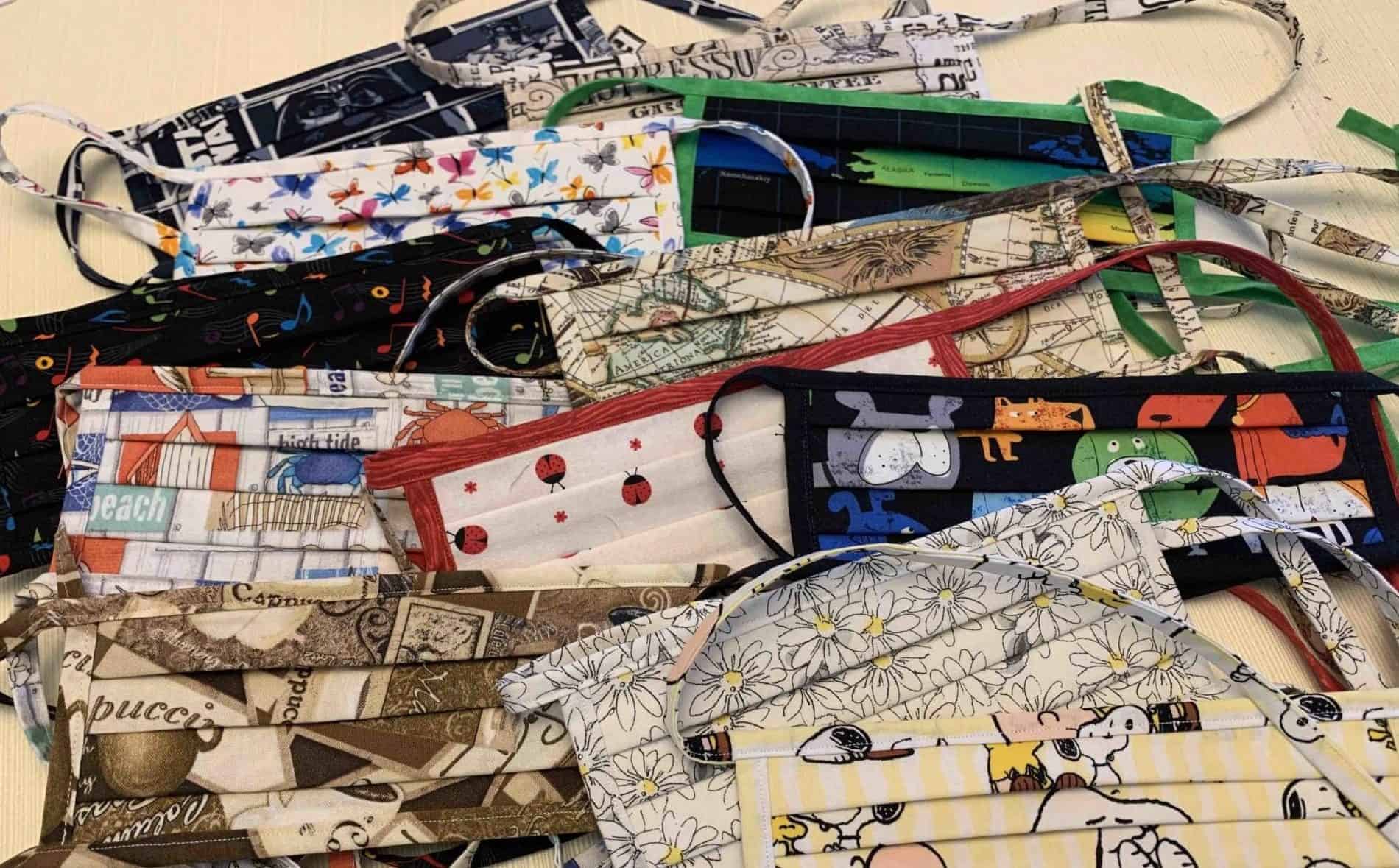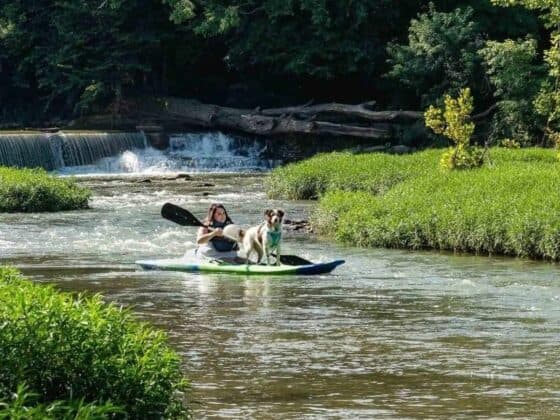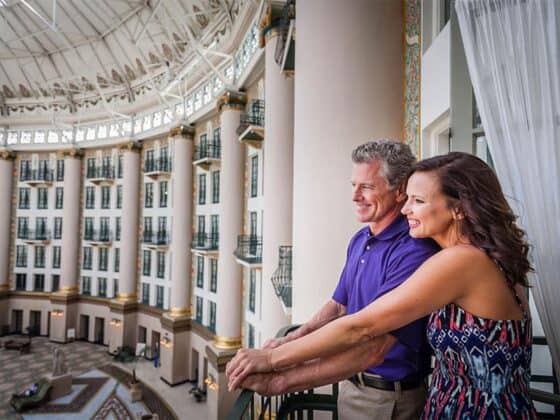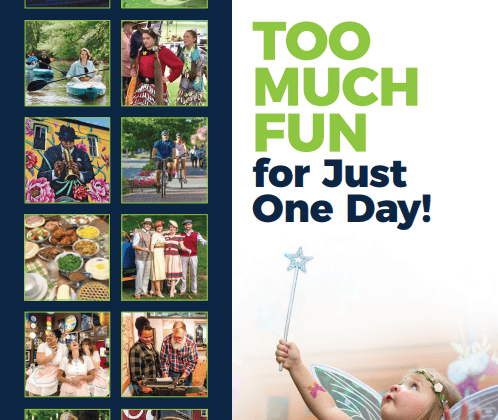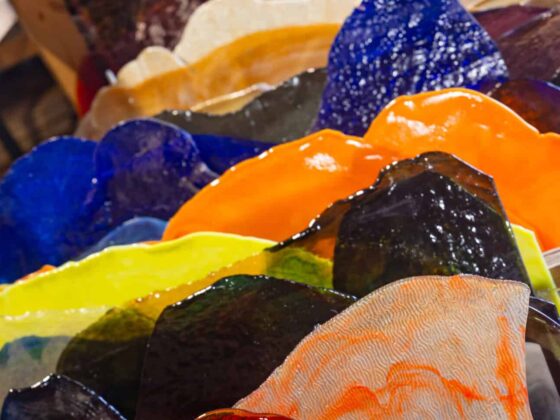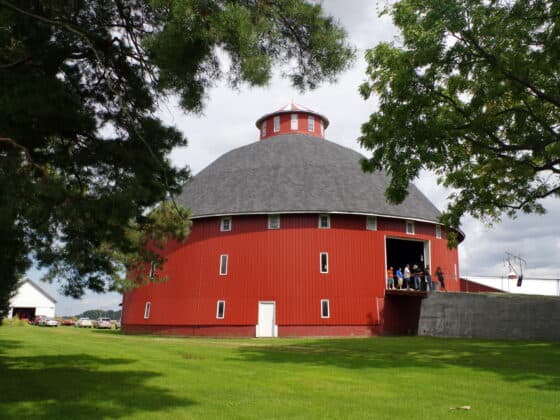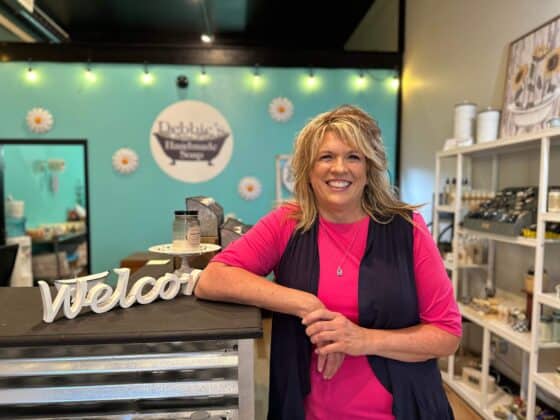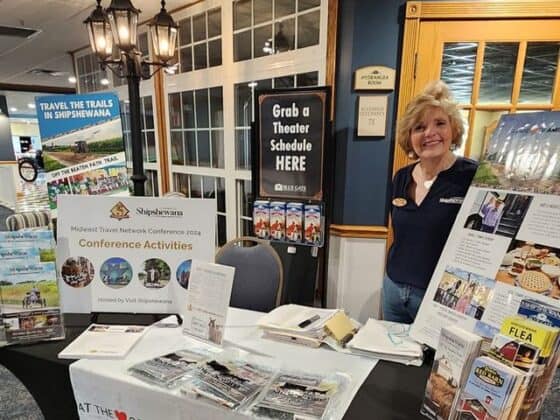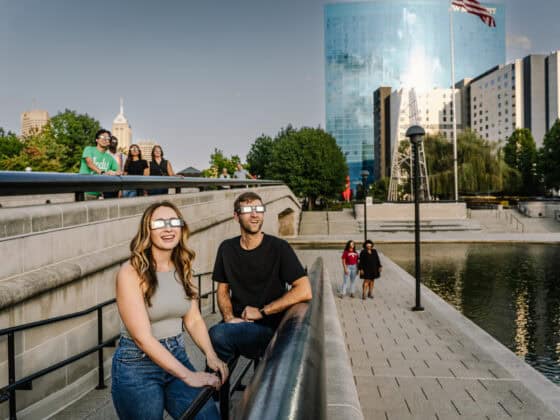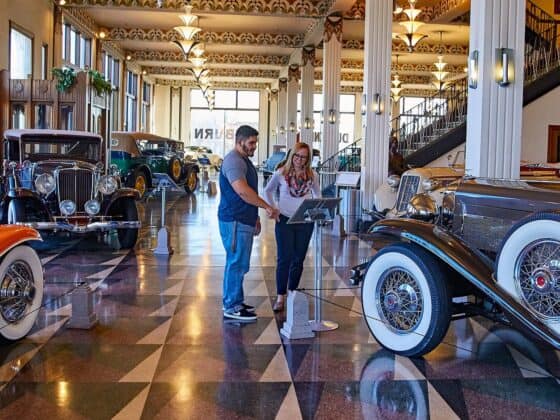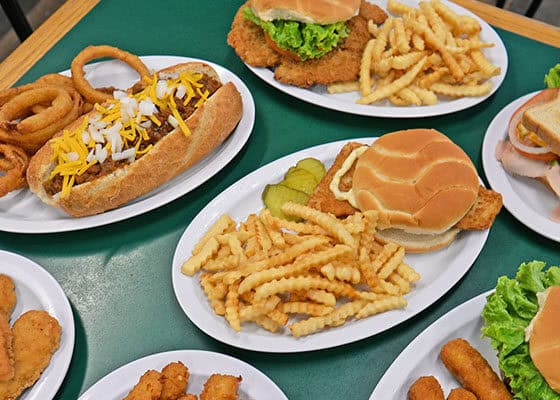Switching gears: Hand sanitizer instead of whiskey. Ventilators instead of auto parts. Carry-out instead of in-restaurant meals, often free. And millions of face masks. Made in America 2020.
by Elizabeth Granger
When wanderlust strikes, Steve and Darlene Tague of Fishers – featured in this issue’s cover story – don’t ever forget their face masks at home. That’s because the masks stay in their auto, always ready for the road.
The masks were made especially for them by a friend who knows about their desire to travel. The patterns on the fabric? Maps.
That friend made masks for many of her friends, and she made masks for workers at a local nursing home. She donated them all. It’s a sign of these times that started with a shortage of masks for medical personnel. That shortage led to millions and millions of donated homemade masks. And with the CDC’s recommendation that everyone continue to wear masks, the need continues.

Individuals are making masks and related gear. So are organizations. For example, the owner of Fables and Fairy Tales book shop in Martinsville, who is an emergency nurse who works on an air ambulance, created and donated comfort clips to health care workers to take the pressure from face mask elastic off the ears when worn for extended periods of time. So did Hometown Shirts and Graphix in Delphi.
Businesses, too, are making masks. Vera Bradley and cinda b, two Fort Wayne handbag and accessories companies, are making masks and hospital gowns with stylish fabrics they’ve become known for. They’re also selling masks online.
The Whittaker Inn in Lafayette is spearheading a “Moment in Time” comfort blanket drive. They’re requesting knit and crocheted pieces from anyone; the inn will combine them to create blankets to be distributed to those in need in the fall.
There’s been a similar burst of help with hand sanitizer, which has been impossible to find in many places. Because a hefty percentage of sanitizer is alcohol, distilleries have stepped up. They include Hoosier producers such as Starlight Distillery in Borden, Spirits of French Lick in West Baden, Cedar Creek Distillery in Martinsville, Oakley Brothers’ Distilleryin Anderson, Monkey Hollow Winery and Distillery in St. Meinrad, Indiana Distillery in South Bend, and Three Rivers Distilling Company in Fort Wayne.

And then there’s Annie Oakley Natural Perfumery in Ligonier, which suspended its perfume production to make hand sanitizer instead. The Purdue College of Pharmacy and Purdue University Pharmacy have been busy compounding hand sanitizer, too.
Primary recipients have been frontline workers in healthcare, emergency services and essential employee work places. As with masks, much of the hand sanitizer has also been made available to the public.
Trish’s Red Bird Café in Dayton, near Lafayette, provided free meals to truckers beginning in March, when most restaurants along their routes were closed. Signs on I-65 invited truckers to stop for a hot, homemade meal. “Truckers help feed us, so let’s feed them,” read the signs. The restaurant was prepared to provide the service on its own and, owner Trish Brown posted on Facebook, was overcome with gratitude when locals began donating funds to help the restaurant provide the meals.
Many organizations provided funds for meals for frontline workers, helping restaurants as well as the meal recipients. When lodging and restaurant employees were laid off, some employers provided free meals for their employees. Pints & Union in New Albany is part of the national LEE Initiative’s Restaurant Workers Relief Program that turns restaurants into relief centers to help furloughed restaurant workers with free to-go meals.
La Scala & Small Wonder Food in Lafayette created a new business called Bota-Nanny as a sustainable way to feed the community. They build and deliver different types of gardens to people around Greater Lafayette, donating one constructed and maintained garden for every 10 gardens sold.
When the pandemic struck, Primex Plastics in Richmond began creating face shields for hospital workers and EMTs. Then they added counter shields for businesses, and then clear divider shields for golf carts.
In Kokomo, General Motors partnered with Ventec Life Systems to produce critical care ventilators at the Kokomo GM facility. The first ventilators off the production line were shipped in early April to help patients fighting COVID-19.
A myriad of stories throughout the state are similar. “We’re all in this together” is a commonly-heard expression.
Nancy Sartain, leisure travel manager at the Richmond/Wayne County Convention and Tourism Bureau, says, “I’ve been inspired by the number of people coming together for the betterment of their community, state and nation. Workers across a vast array of industries have been essential parts of the machine that keeps the world in motion. That is the true American spirit.”
Mask Brigade ‘feeling purposeful’
Date Night for Sara and Mark Phillips: a good drink, some good tunes, a good fire – all centered around fabric, scissors, and an ironing board.
“I’m cutting, he’s ironing,” Sara says.
They’re just two of about 3,000 members of The Brigade, a group of mask-making volunteers in Hamilton County. Co-founder Mindy Riley calls the project a blessing. “We’ve forged new friendships with perfect strangers through a cause we all believe in. It has brought our community together in the most incredible way, like the thread that binds the mask seams together. We all now share a special bond.”

The organization was formed in March to make masks for medical personnel and first responders. Work is done through a distanced assembly line. Brigade members have specific tasks; in addition to sewers, there are people who cut fabric or make bias tape or drive mask pieces from one “specialist” to another through the group’s “Pony Express.” Most of the masks have elastic, but some have ties instead. There are even Brigade members who make headbands with buttons for mask wearers who find the elastic to be uncomfortable to wear.
Now masks are also offered to the general public. At no cost. “My favorite thing is the reaction of true surprise and gratitude when we say they are all free,” Riley says. It’s because the materials are donated.
Riley concedes that some group members were hesitant to provide free masks to the public. “But when they heard how much more donated funds we were able to draw than if we were selling them, they quickly saw the value in helping any and all in need.”

Those donors often get masks at farmers markets. “They donate back to the cause, generously,” Riley adds.
Trustee offices are supplied with masks for needy families that visit their food pantries.
Masks have traveled throughout the country. Some have been sent to areas with surging virus numbers, like Florida and Arizona. “Some that were headed to Disney even got their Disney fabric choices to take with,” Riley adds. “Their little ones will keep a mask on now since they got to pick them out and have cool characters to morph into.”
The organization also makes gowns and plastic face shields. It has filed for non-profit status as The Brigade. Additional information is available on Facebook under Hamilton County Indiana Mask Brigade.


